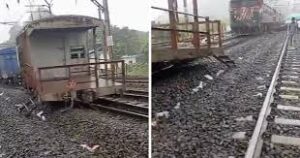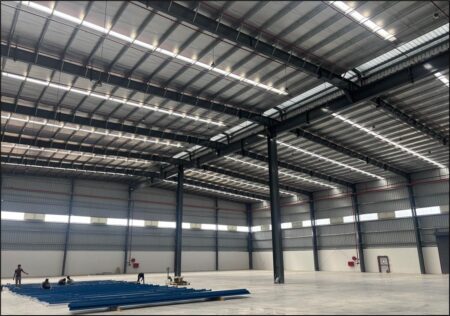Rajasthan’s warehouses are set to gain industry status, resolving legal issues and enabling financial incentives for development.

The Rajasthan Industries Department is poised to officially recognise warehouses as industrial units, putting an end to a long-standing controversy regarding their status. Currently, the Rajasthan State Industrial Development and Investment Corporation (RIICO) does not classify warehouses as industrial units, conflicting with the policy stance of the Urban Development and Housing (UDH) department and the central government. Consequently, nearly 300 warehouses in the Vishwakarma Industrial Area of Jaipur have been declared illegal.
The newly proposed draft logistics policy, which encompasses various storage facilities such as warehouses, logistics parks, dry ports, air freight stations, and cargo terminals, stipulates that RIICO will reserve either 10 acres or 10 percent of the land area, whichever is less, for infrastructure development in all forthcoming industrial parks. Ajitabh Sharma, the Principal Secretary for Industries, expressed a vision for the future, stating, “We see a future where every shipment is handled with precision, every route optimised for efficiency, and every connection fortified for reliability. We aim to create an interconnected infrastructure in Rajasthan, and warehouses are an important part of it.”
Many warehouses have emerged in the Vishwakarma Industrial Area due to its advantageous proximity to major highways. However, the lack of recognition from RIICO has resulted in notices being served to these facilities in the past.
“We have been demanding industry status for warehouses for a long time. Many people have invested crores of rupees in these projects. We are happy that the government has decided to correct this policy anomaly. This will end unnecessary controversy and harassment to the industry in VKI and other places,” stated Jagdish Somani, President of the Vishwakarma Industries Association.
The draft policy introduces several financial and non-financial incentives aimed at leveraging the state’s high-potential zones for developing logistics hubs. Rajasthan boasts nine economic corridors that encompass railway networks, expressways, and the western dedicated freight corridor, surrounded by active production clusters.
Key financial incentives outlined in the draft policy include 100 percent exemptions on stamp duty, electricity duty, land taxes, and land conversion charges for a period of 7 to 10 years. Additionally, projects may claim capital and interest subsidies for specified periods. To qualify for these benefits, projects must be developed over a minimum area of 50,000 square feet, have a 60-foot-wide approach road, and involve investments of at least ₹10 crore over three years.
This new policy aims to bolster Rajasthan’s logistics infrastructure, facilitating the growth and development of warehouses as essential industrial units in the state.











